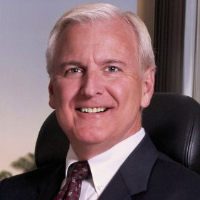La Jolla Bankruptcy & Debt Lawyer, California
Sponsored Law Firm
-
 x
x

Click For More Info:
-
Fitzgerald & Campbell, APLC
400 N. Tustin Avenue Suite 401 Santa Ana, CA 92705» view mapBankruptcy & Debt Lawyers Who Solve Serious Problems
We are a motivated, respected, and experienced law firm that provides affordable services that get results.
800-732-9061
Jeffrey D Schreiber
✓ VERIFIEDEstate, Bankruptcy & Debt
Jeffrey D Schreiber is a practicing lawyer in the state of California.
Jackie Robert Geller
Bankruptcy & Debt, Estate, Tax, Divorce & Family Law, Family Law
Bankruptcy, Estate Planning, Tax and Family Law
Jackie Robert Geller is a graduate of Thomas Jefferson School of Law. A member of the California State Bar since 1980, Attorney Jackie Robert Geller h... (more)
Steven M. Romanoff
Real Estate Other, Land Use & Zoning, Banking & Finance, Reorganization
Status: In Good Standing Licensed: 37 Years
FREE CONSULTATION
CONTACTDarvy Mack Cohan
Military & Veterans Appeals, Corporate, Business Organization, Credit & Debt, Bankruptcy
Status: In Good Standing Licensed: 51 Years
Richard Cornelius Wildman
Employee Rights, Family Law, Contract, Credit & Debt
Status: In Good Standing Licensed: 47 Years
Antony Derek Nash
Construction, Litigation, Business, Commercial Bankruptcy
Status: In Good Standing Licensed: 23 Years
David T. Seto
Commercial Real Estate, Social Security, Bankruptcy, Bankruptcy & Debt
Status: In Good Standing
David Sean Dufek
Landlord-Tenant, Foreclosure, Motor Vehicle, Collection
Status: In Good Standing Licensed: 27 Years
 Gregory Fitzgerald Santa Ana, CA
Gregory Fitzgerald Santa Ana, CA AboutFitzgerald & Campbell, APLC
AboutFitzgerald & Campbell, APLC Practice AreasExpertise
Practice AreasExpertise


